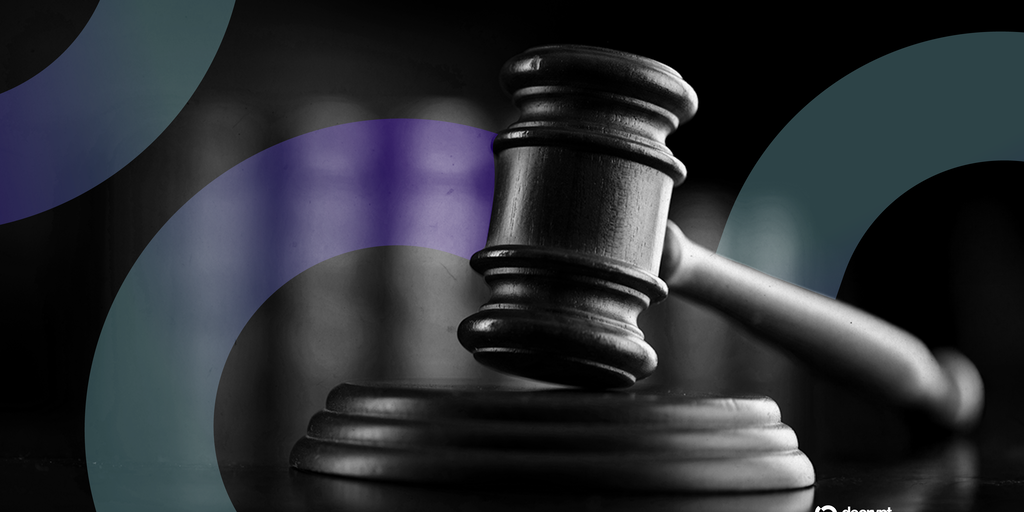In brief
- Philippine Senate Bill 1330, filed by Senator Paolo Benigno “Bam” Aquino IV, seeks to mandate blockchain-based tracking of government spending under an $8.6 million initial appropriation.
- The push follows public scrutiny over $9.2 billion in infrastructure projects flagged for irregularities.
- Lawyers told Decrypt the bill risks concentrating control, limiting data contestability, and turning transparency into a technical illusion.
Philippine lawmakers are considering Senate Bill 1330, a legislative piece that would mandate blockchain-based solutions to be implemented for the country’s national budget.
Efforts to establish an on-chain, immutable record for the country’s budget system have intensified amid heightened public scrutiny of government spending, following a wave of anti-corruption protests demanding accountability for roughly $9.2 billion allocated to public works projects with alleged irregularities flagged by Philippine President Ferdinand Marcos Jr., as cited in a Reuters report.
The bill was proposed by Senator Paolo Benigno Aquino IV in late August, with an initial appropriation worth roughly $8.6 million. Several congressional proposals in the lower house are being aligned with the bill, according to a senate hearing convened earlier this month.
Legal experts in conversation with Decrypt support the bill’s transparency goals, but warn its tech-heavy design could create risks instead of curbing corruption.
Florin Hilbay, former Solicitor General of the Philippines and author of a book on Bitcoin, questioned whether the system addresses actual governance failures.
Conversation around the bill appears “confused” because it assumes “that using a blockchain automatically promotes transparency or prevents corruption,” Hilbay told Decrypt.
“In the same way that the current system used by government for tracking the flow of funds can be improved by any software with multiple redundancies, the use of a centralized blockchain can do exactly the same thing,” Hilbay said, adding that such an idea could reduce the term “to a mere marketing tool.”
Asked about safeguards against privatization or monopolization of access to public financial data, Hilbay offered an analogy.
“Think of the budget—the national ledger for the flow of public funds—as a national highway,” he said, describing how the proposal “essentially transforms that public highway into an expressway run as a public-private partnership.”
Despite the prospect for better transparency, it risks “exposing an important public infrastructure to the possibility of critical failure” owing to the chain’s centralization, he added.
“Immutability is a result of the integrity of the chain; it isn’t baked into a blockchain simply because the proponents say so,” Hilbay said.
Public data, privatization risks
Russell Geronimo, founder and managing lawyer at tech-focused firm Geronimo Law, told Decrypt that while on-chain transparency measures could help “make records tamper-evident,” it does not address government infrastructure issues.
“The problem is not the absence of an immutable ledger, but the weakness of procurement oversight, audit, budget oversight, and protection for whistleblowers,” he said, adding that, “Technology cannot replace the integrity of institutions.”
It may also “hinder legitimate corrections and reinterpretations,” Geronimo added, pointing out that citizens “must be able to verify, question, and revise what government declares as fact.”
Weighing on the matter, the Philippine Association of Fintech Lawyers, present in the aforementioned senate hearing, voiced concerns over risks when private entities control blockchain infrastructure.
“The government must retain ownership and control over all budgetary data, with private contractors serving merely as technical service providers,” the group told Decrypt.
They also called for open-source protocols and data portability requirements to “prevent vendor lock-in” and “the emergence of monopolistic arrangements” that could lead to “de facto privatization of public information systems.”
A full statement was provided to Decrypt.
Daily Debrief Newsletter
Start every day with the top news stories right now, plus original features, a podcast, videos and more.

